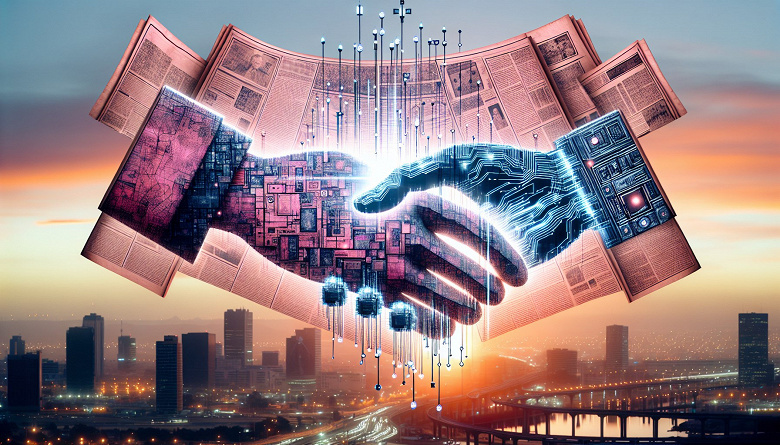Summaries, quotes and links to FT articles will appear in ChatGPT replies
The British newspaper Financial Times, owned by the Nikkei publishing house, has entered into an agreement with OpenAI to license its content and jointly develop artificial intelligence tools. In doing so, this respected business publication joins a number of major media organizations that have previously signed similar partnership agreements with OpenAI.
Under the terms of the deal, when ChatGPT users request information related to Financial Times materials, they will be able to see paraphrases, excerpts and quotes from relevant newspaper articles in the responses, as well as direct links to the original sources of these publications. The content will be clearly attributed to the Financial Times.
Financial Times Group CEO John Riding said it's only fair that AI platforms pay publishers to use their original content. «At the same time, it is clearly in the interests of users that such AI products contain reliable and authoritative sources of information», — Riding added.
He stressed that the Financial Times remains committed to «humane journalism» High Quality. However, the agreement with OpenAI will expand the reach of quality journalistic content while deepening our understanding of the needs and interests of the readership.
Financial Times also reported that it is already a corporate client of ChatGPT Enterprise and intends to work closely with OpenAI in the development of new products based on artificial intelligence. In addition, the newspaper is currently testing its own chatbot called Ask FT (&ask the Financial Times»), which runs on Anthropic's Claude platform and is trained on the publication's materials.
Previously, such media holdings and publications as the Associated Press, the French Le Monde and Axel Springer — announced the conclusion of similar partnership agreements with OpenAI. owner of Politico, German Bild and other well-known media.
At the same time, a number of large media companies, including the BBC, chose to develop their own artificial intelligence models. The BBC is in talks with tech giants like Amazon to sell access to its vast archives as part of the initiative.
The New York Times took the opposite approach, filing a copyright lawsuit against OpenAI and its investor Microsoft. The lawsuit alleges that the companies illegally used millions of articles from the publication to train their models without obtaining permission.
So the world's leading media are taking various steps to define the rules of the game in a fast-growing market.

